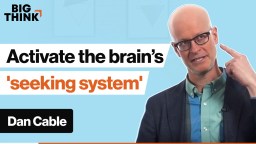neuroscience
A groundbreaking Stanford University study explains the areas of the brain that are impacted by hypnosis.
A joint study by two England universities explores the link between sex and cognitive function with some surprising differences in male and female outcomes in old age.
The distracting nature of modern media is having a terrible effect on what we learn.
Using magnetic nanoparticles, scientists stimulate the adrenal gland in rodents to control release of hormones linked to stress.
This is one of countless studies that prove the positive impact of social connection and intimacy while highlighting the negative impact of isolation and separation.
A new study at UPenn found that effective learning includes mistakes—just not too many.
Brain-computer interfaces give scientists their closest look so far at what the human brain does while we’re asleep.
Researchers at the University of Copenhagen might have discovered a cure.
Your morning coffee is good for you – if you drink it at the right time.
A new study finds evidence of an important neural speech pathway in macaques.
A study finds that while musical newbies exercise the brain’s so-called creative hemisphere, pros have moved on.
Johns Hopkins University professor Susan Carnell explains the neuroscience behind eating out of boredom (and how to stop).
An overabundance of this particular protein make mice anxious and is found in human OCD patients.
How can we promote the creation of new neurons – and why is it so important?
How you think about your work alters your relationship to it.
▸
3 min
—
with
Music, journaling, and spending time with your pets are all science-backed ways to boost mental health during stressful times.
Scientifically, it’s referred to as ‘cancer-related cognitive impairment’ or ‘chemotherapy-related cognitive dysfunction’.
Researchers at UCSF have trained an algorithm to parse meaning from neural activity.
Nostalgia is also proven to decrease loneliness and increase resiliency.
Researchers observed “inter-brain coherence” (IBC) — a synchronisation in brain activity — between a musician and the audience.
This video game designer’s creations have been said to work “neurological magic.”
An inside look at common relationship problems that link to how we were raised.
It’s never too late to start strengthening your brain.
Play and experimentation are the keys to creativity and innovation.
▸
5 min
—
with
Our remarkable olfactory senses are modeled in a new research chip.
It’s not just an old superstition — it’s your stressed-out brain.
Research from Denmark finds that mindfulness and music help sustain attention.
Unique research out of Switzerland says be kind, just not too kind.
Two types of thinking have a time-sharing deal going on in your brain.
The more we learn about genetics and the brain, the more impossibly complicated both reveal themselves to be.





























